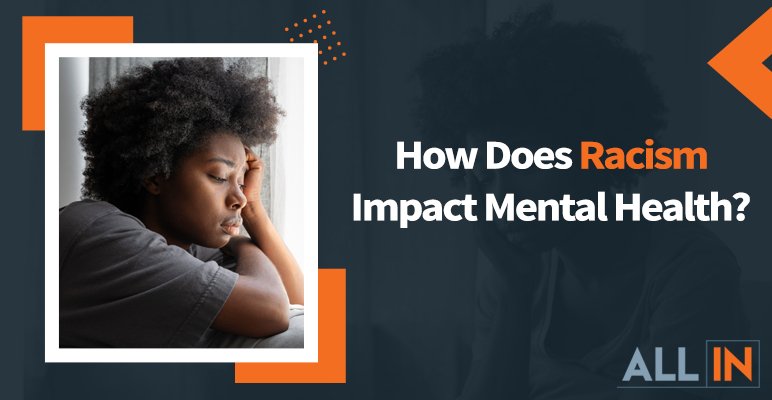
Racism is a persistent problem in a world where many are striving to make it more inclusive and progressive. Apart from its evident effects on society, racism has a significant negative impact on mental well-being. To better understand the complex relationship between racism and mental health, this article will examine how it affects both individuals and society at large.
Table Of Contents
Facts on Mental Health and Race
What Effects Does Racism Have On People?
What Effects Does Racism Have On Someone’s Mental Health?
Are Those That Are Racist Also Hurt By Their Racism?
How Does Anti-Racism Impact Mental Health Disparities?
Conclusion
Facts on Mental Health and Race
It is important to understand the current gaps in mental health that exist between various racial groups before exploring the consequences of racism on mental health. When it comes to mental health illnesses, racial and ethnic minorities often have a far higher prevalence of mental health disorders. Some mental health facts related to race are given below:
- Adult Black individuals report suffering from severe psychological distress at a rate that is twenty percent higher than that of White individuals.
- Compared to their white counterparts, black adults are more likely to feel depressed, hopeless and worthless (American Psychological Association, 2016).
- Although the incidence of depression among Black individuals (24.6%) and Hispanic individuals (19.6%) is lower than those among White individuals (34.7%), it is important to remember that the duration of depression is longer in these two groups (Budhwani et al., 2015).
- Among all racial and ethnic groups, those who identify as belonging to two or more races are the most likely to report having had any form of mental illness in the previous year (24.9%) (Underwood & Washington, 2016).
What Effects Does Racism Have On People?
Racism is a pervasive issue that affects people on many levels and permeates many facets of life. The development of an increased stress response is one of the subtlest impacts. Chronic stress is caused by a “fight or flight” response that is triggered by ongoing encounters with racial discrimination. Anxiety and depression are only two of the mental health conditions that this stress can exacerbate (Lee et al., 2018). Chronic stress might show itself as impaired immune system performance, heart problems (Thames et al., 2019), and sleep disruptions or other physical ailments (Ong & Williams, 2019).
Furthermore, it is important to recognize the psychological costs of racism. People w